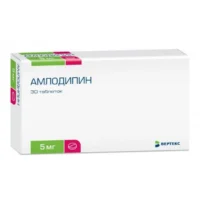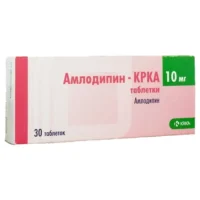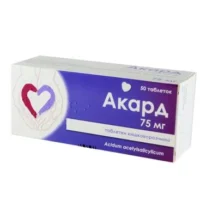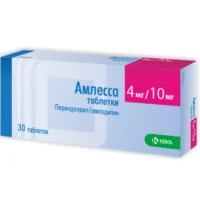Description
Prestarium (Perindopril) Coated Tablets 10 mg. №30
Ingredients
- Perindopril is the active ingredient in Prestarium tablets.
- Each tablet contains 10 mg of perindopril, an ACE inhibitor.
Dosage
The recommended dosage of Prestarium tablets is one 10 mg tablet taken orally once daily.
Indications
- Prestarium tablets are indicated for the treatment of hypertension, heart failure, and to improve survival after a heart attack.
Contraindications
- Avoid Prestarium tablets if allergic to perindopril or any other ACE inhibitors.
- Inform your doctor about medical conditions or medications before starting Prestarium.
Directions
Take Prestarium tablets exactly as prescribed by your healthcare provider. Swallow the tablet whole with water; do not crush or chew it.
Scientific Evidence
- Perindopril effectively lowers blood pressure and reduces cardiovascular risk.
- Research in the European Heart Journal supports the benefits of ACE inhibitors like perindopril in heart failure.
Additional Information
- Monitor blood pressure regularly while taking Prestarium tablets.
- Report side effects such as dizziness, cough, or facial/throat swelling to your doctor.
Perindopril inhibits angiotensin-converting enzyme (ACE), reducing blood pressure by relaxing blood vessels and decreasing cardiac workload.
Clinical trials demonstrate Prestarium’s efficacy and tolerability in managing hypertension and heart failure. Comparative studies show perindopril’s effectiveness similar to other ACE inhibitors in reducing cardiovascular events and mortality.





